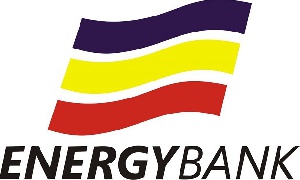In the wake of MTN Ghana’s record breaking Initial Public Offer, banks in Ghana that have been looking up to share offers on the Ghana Stock Exchange to meet the Bank of Ghana’s GHc400 million minimum capital requirement are having to reconsider their plans because of worries that MTN’s share offer has sucked up all the available liquidity on the primary market – that is the market for new share issuances – for equities.
MTN Ghana’s IPO attracted GHc1.146 billion from equity investors, and although this is only 32% of the target of GHc3.478 billion, it is still far and away the biggest share offer in the two and a half decades that the GSE has been in existence.
Prior to the issue the biggest IPO hitherto, done by Agricultural Development Bank in late 2016, had raised GHc326 million, barely a quarter of what MTN’s share offer has generated.
Consequently, there are genuine fears among banks and their transaction advisors, that any share offer put on the GSE now would be unsuccessful simply because most equity investors have exhausted their available investment capital on the MTN share offer.
Indeed Energy Bank for instance, had planned its IPO for middle of this year, but having obtained the necessary approvals from the Securities and Exchange Commission, Bank of Ghana and the GSE itself, prudently opted to delay its share offer since it could not compete successfully with MTN’s offer if both were put on the stockmarket at the same time.
But even now the latter’s share offer has closed, there are worries that there are not enough equity investor funds still available on the GSE, even as the deadline for recapitalization looms closer, with less than four months to go until the end of 2018.
To be sure Energy Bank only needs about GHc300 million and a good part of this has already been arranged with institutional investors who have agreed on how much they would put up when the IPO opens. But considering that MTN itself only raised a third of its target, it is likely that even raising GHc200 million would be very difficult currently.
These worries are exacerbated by worries that about three banks were working on IPOs as a last resort and if they all try to go ahead before the recapitalization deadline, then several banks would be competing for whatever limited equity investments are still available.
An alternative that the affected banks are now considering is government’s declared willingness to provide bridging finance for banks that deserve to raise the requisite new equity capital to retain their banking licenses but who are being challenged temporarily by “unfavourable market conditions.” Shareholders of the affected banks argue that the lack of investible equity funds on the GSE because of the MTN share issue qualifies as such unfavourable market conditions.
Over the next few weeks therefore government’s commitment to back up its declaration in this regard will most likely be put to the test as share issues on the GSE have lost most of their potential as a panacea to the banks recapitalization challenges.
Business News of Monday, 3 September 2018
Source: goldstreetbusiness.com













